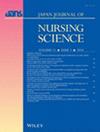Pediatric outpatient experiences of senior nursing students: A qualitative study
Abstract
Objectives
This study aimed to explore the experiences of senior nursing students working in a pediatric outpatient clinic.
Methods
This study adopted a descriptive phenomenological approach, through semi-structured interviews. Purposive sampling was used to select 12 senior nursing students in the pediatric outpatient clinic of West China Second University Hospital, Sichuan University, China, from August 2020 to March 2021. The collected data were analyzed using the Colaizzi method.
Results
Four themes were identified in this study: knowledge and skills (triage, emergency care), communication (courage, communication skills), value re-evaluation (understand of outpatient nurses, judgment of outpatient nurses), and outpatient feelings (satisfaction, empathy, pressure).
Conclusion
Pediatric outpatient internships have a positive impact on senior nursing students. Research has found that constructing a nursing clinical practice pathway in pediatric outpatient clinics helps teachers and students clarify the objectives and content of internships, and the “shadow teaching” model is conducive to nursing students' empathy and thinking. In addition, outpatient internship experience can help students gain communication courage.

 求助内容:
求助内容: 应助结果提醒方式:
应助结果提醒方式:


